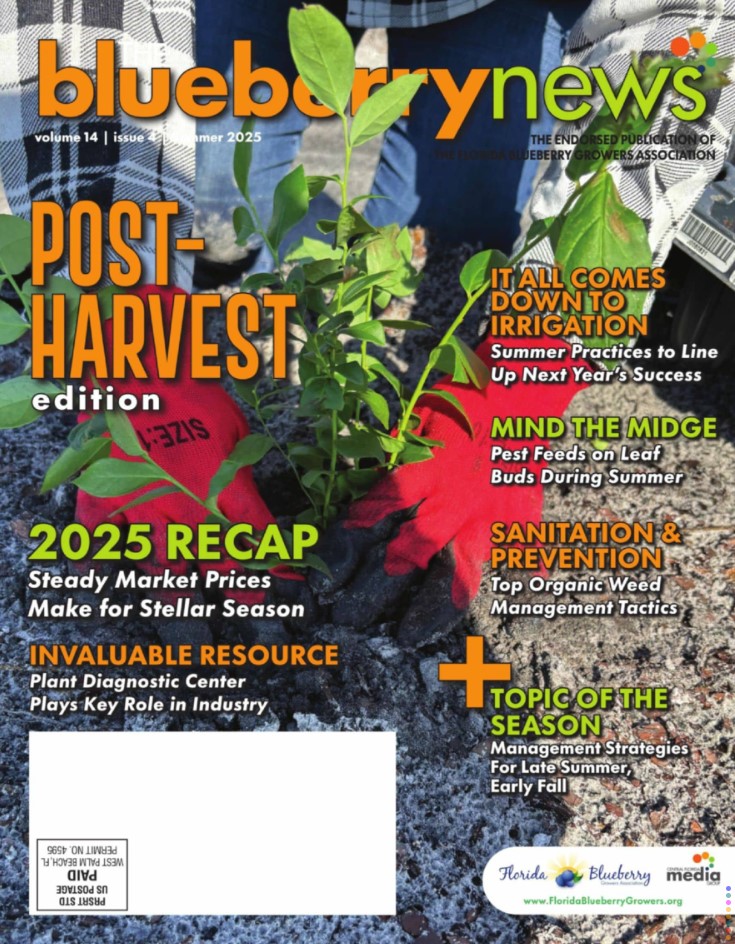David E. Norden was born in Ames, Iowa, on August 2, 1957, the fifth of six children of Catherine and Allen J. Norden. His family moved to Florida in 1958 after his father completed graduate studies at Iowa State University and accepted the job of assistant professor of agronomy at the University of Florida, Gainesville. Growing up in rural Alachua County, he became familiar with the natural and agricultural systems of North Florida. As a teenager, he worked for local farmers during breaks from school and spent free time enjoying the woods and the waters. David graduated from Buchholz High School in Gainesville in 1975 and worked as a tractor driver for the University of Florida vegetable crops department and then as a cabinet maker before enrolling at the University of Florida in the fall of 1977. He graduated from the University of Florida with honors in December 1980 with a Bachelor of Science degree in Plant Science and certificate of specialization in Integrated Pest Management.
In January 1981, David was hired by the UF fruit crops department as an ag technician to work with both Dr. Paul Lyrene, the new full-time blueberry breeder, and Dr. Tim Crocker, the deciduous fruit extension specialist. Blueberries at this time were not yet a significant commercial crop, and the majority of David’s efforts in the early 1980s were directed to the rapid expansion and improvement of the field and greenhouse aspects of the blueberry breeding program. Establishment and maintenance of the increasing amounts of germplasm required for a first-rate breeding program demanded a great deal of challenging and creative problem solving under the limiting constraints of budget, labor, available equipment, and less than ideal blueberry soil at the research station. Throughout the years, the program benefited tremendously from the closely associated and inputs of knowledge and experience offered by the pioneering blueberry growers of the area.
The University of Florida in the 1980s allowed employees to enroll in job-related courses tuition-free with their supervisor’s permission, and over several years David completed more than 20 hours of plant breeding and genetic-related graduate courses. By the late 1980s, however, interest in the Florida blueberry program was heating up quickly as some of our grower friends were starting to commercially pack and ship early highbush fruit in April and May for very high prices before the North Carolina highbush and Georgia rabbiteyes came in late May and June. David decided at this time to stay with his job in the UF blueberry breeding program rather than pursue a graduate degree and work with a different crop, probably in a different state, as the system usually dictates.
In 1990, David was afforded the opportunity by Alto Straughn to begin part-time consulting work and help expand his blueberry farm near Gainesville. Dr. Straughn’s close ties and commitment to UF’s research and extension programs made this relationship beneficial to all parties involved. All the knowledge gained from experiment, experience, and trial and error on Straughn farms was shared openly and honestly with anyone interested in this exciting new cash crop.
David was often consulted by other growers to offer advice on particular problems in their fields. Some of these ventures were quite successful and some not so much, but always something was learned.
In the late 1990s and early 2000s, the blueberry breeding program was releasing new highbush blueberry varieties at the rate of about one per year. Some of these were a great boon to the industry and some failed. David’s work in the process involved every aspect of growing 12,000-15,000 seedlings from about 100 individual cross combinations and selecting the most promising 10% of these. He grew these seedling selections in place for the next three years while determining the best 10% of these to be propagated as advance selections. About 100-300 of these advanced selections would be propagated to plant in 15 plant plots for further evaluation over a period of about five years. This continuous cycle is the basis of mass recurrent selection that gradually improves the quality of all the traits the breeder is trying to improve in the germplasm population.
Dr. Lyrene retired in 2009, and Dr. Jim Olmstead was hired to replace him as the director of the breeding program in 2010. During the years that followed, Dr. Olmstead asked David to continue the recurrent selection program as it was established and successful. In 2015, Dr. Olmstead left the UF blueberry breeding program and Dr. Patricio Munoz was brought on as the new program director in 2016. For the next three years, David continued to manage the recurrent selection breeding program until his retirement in 2019. Advanced selections made by David will continue to be evaluated as potential new varieties throughout the next decade.
David married Claudia Bagneschi in 1988. They have three grown children: Austin Norden, Elliot Norden, and Clair Norden, all proud graduates of the University of Florida.





